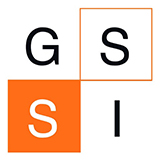Introduction
The Gran Sasso Science Institute (GSSI) is an international doctoral school and research center for higher education and research in L'Aquila, Italy, focusing on teaching and research in the fields of physics, mathematics, computer science and social sciences.
Overview
Number of students: 160 postgraduate students in 2018.
Courses: Doctoral programs in four majors are offered: Astroparticle Physics, Mathematics in Natural, Social and Life Sciences, Computer Science, Regional Science and Economic Geography.
History
After the 2009 L'Aquila earthquake, the Italian Ministry of Economy and Finance and the Organization for Economic Cooperation and Development proposed the establishment of an educational and scientific research institution using the Gran Sasso National Laboratory.
In 2012, the Gran Sasso Science Institute was officially established and began operations in the 2013-2014 academic year. Its founding members include scholars such as Eugenio Coccia and Paola Inverardi.
In 2015, the Italian National Agency for Evaluation and Research of University Systems evaluated the activities during the period 2012-2015 and gave a positive evaluation.
March 25, 2016 On the same day, the Institute officially became a university with the approval of a special decree of the Council of Ministers. On August 8 of the same year, Eugenio Coccia was appointed as the president.
Establishment time: 2012.
School strength
Teaching staff: It has an international teaching staff, most of whom are experts and scholars in related fields. They not only have fruitful academic research results, but also have rich teaching experience and can provide students with high-quality teaching and guidance.
Teaching resources: It has established cooperative relations with many internationally renowned scientific research institutions and universities to share teaching and research resources. In addition, the school relies on scientific research facilities such as the Gran Sasso National Laboratory to provide students with unique conditions for carrying out scientific research activities. Students have the opportunity to participate in cutting-edge scientific research projects and come into contact with advanced scientific research equipment and technology.
Institutional nature: Public higher education and research institutions.
Educational philosophy
Committed to breaking down barriers between disciplines, promoting interdisciplinary exchanges and cooperation, cultivating students' interdisciplinary thinking and innovation capabilities, and enabling students to better cope with various challenges in today's complex world.
Focus on spreading scientific research results to the society, actively promoting the development of cultural activities, promoting the popularization and promotion of scientific knowledge, and improving the public's scientific literacy.
Key laboratories and disciplines
Key laboratories: Closely cooperate with the Gran Sasso National Laboratory, which is located 1.4 kilometers underground in the Gran Sasso Mountains. It is an important place for conducting research on astrophysics, cosmogenesis, nuclear physics and geophysics, providing strong support for the school's scientific research activities.
Key disciplines: Astroparticle physics, computer science, mathematics in natural, social and life sciences, regional science and economic geography are the school's key disciplines. In-depth teaching and research work has been carried out in these disciplines, and a series of important scientific research results have been achieved, which have a certain influence internationally.
Department **: The school mainly has related departments such as physics, mathematics, computer science, and social sciences.
Ranking **: The specific ranking of the school in the comprehensive ranking of international authoritative universities has not been found yet, but judging from its research results and international influence in related disciplines, the school has a high academic status in its key disciplines.
Cost **: In the 2022-2023 academic year, the school provides a scholarship of 16,159.91 euros per year (before tax) for doctoral students, and all doctoral students enjoy free accommodation and use of the school cafeteria.
Campus environment
Geographic location: Located in L'Aquila, central Italy, the campus is surrounded by beautiful environment and rich natural landscape, providing students with a quiet and comfortable learning and living atmosphere.
Campus facilities: The school has modern teaching facilities and complete living facilities, including advanced laboratories, libraries, multimedia classrooms, student dormitories, restaurants, etc., which provide convenient conditions for students' study and life.
-
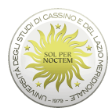
University of Cassino and Southern Lazio
-

University of Campania Luigi Vanvitelli
-
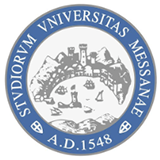
University of Messina
-
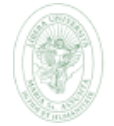
Libera Universita degli Studi Maria SS. Assunta di Roma (LUMSA)
-
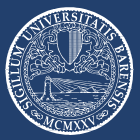
University of Bari Aldo Moro
-
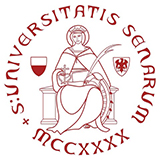
University of Siena
-
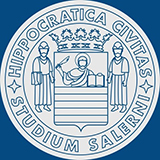
University of Salerno
-
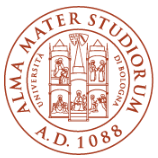
University of Bologna
-
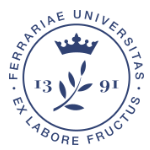
University of Ferrara
-
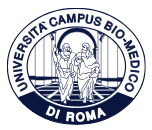
Campus Bio-Medico University of Rome
-

Mesoamerican University
-

Istmo University
-

Mariano Galvez University of Guatemala
-

Regional University of Guatemala
-

Galileo University
-

Francisco Marroquín University
-

Rafael Landívar University
-

University of the Valley of Guatemala
-

University of San Carlos of Guatemala
-

Technological Institute of Tlaxcala Plateau
-

Golfo University
-

Technological University of South Sonora
-

Technological University of Huejotzingo
-

Tizimín Institute of Technology
-

Chilpancingo Institute of Technology

